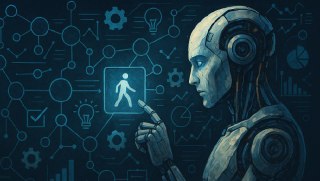The Digital Lag: Is Traditional Consulting Ready for the Agentic AI Revolution?
The Digital Lag: How Traditional Consulting is Failing to Grasp the Agentic AI Revolution
The rise of agentic AI presents a profound and dual-edged challenge to the traditional consulting industry, a sector that has long thrived but is now showing its age. As tech continues to evolve at a breakneck pace, consulting firms find themselves grappling with an existential dilemma. Their historical value proposition, built on deep analysis and human insights, is being called into question by the accelerated capabilities of AI systems that can process data, generate insights, and even enact decisions at unparalleled speeds.
The Shift in Client Expectations
Clients are becoming increasingly aware of what AI can offer, and they have adjusted their expectations accordingly. They no longer merely seek strategic advice; they want actionable insights that can be implemented instantly. This shift has several implications for traditional consulting firms:
- Faster Deliverables: Clients expect quicker turnaround times that AI systems can provide.
- Data-Driven Decisions: The need for real-time data analytics and forecasts gains importance.
- Cost Efficiency: Clients look for solutions that provide value for money, capitalizing on AI’s efficiency.
Challenges within Traditional Consulting
Consulting firms often find themselves ensnared in outdated paradigms. A common scenario includes:
- Overreliance on Human Experts: Firms still lean heavily on their human consultants for insights, which can slow down processes.
- Resistance to Change: Long-standing practices and workflows inhibit the ability to pivot towards AI integration.
- Skill Gaps: Many consultants lack the technical knowledge to effectively work alongside AI systems.
Future Scenarios: Embracing the AI Wave
Despite these challenges, embracing agentic AI could unlock extraordinary opportunities for consulting firms. Here are some hypothetical future scenarios:
- Scenario 1: AI-Integrated Teams – Firms could integrate AI tools in collaboration with human consultants, leading to hybrid teams that are more efficient and produce higher-quality outputs.
- Scenario 2: Custom AI Solutions – Developing tailored AI solutions for individual client needs could become a new revenue stream, showcasing firms as thought leaders in AI innovation.
- Scenario 3: Continuous Learning – AI systems that learn and adapt could offer clients ongoing advice and updates, creating long-term partnerships based on real-time data.
Implementing AI: Steps Forward
To harness these potential benefits, traditional consulting firms need to take decisive action:
- Invest in Training: Upskill current consultants to work with AI tools to bridge the knowledge gap.
- Partnerships with Tech Firms: Collaborate with AI developers to bring cutting-edge technology into consulting practices.
- Change Management: Foster a culture that embraces innovation and change within the firm to combat resistance.
Conclusion
The agentic AI revolution presents both challenges and exciting possibilities for the consulting industry. Firms that are willing to adapt and innovate will not only survive but potentially thrive in this new landscape. Embracing technology can enhance service offerings, improve efficiency, and ultimately deliver greater value to clients.
If your firm is ready to take the next step in integrating AI into your consulting practices, we invite you to schedule a consultation with our team. Let’s turn challenges into opportunities together!


